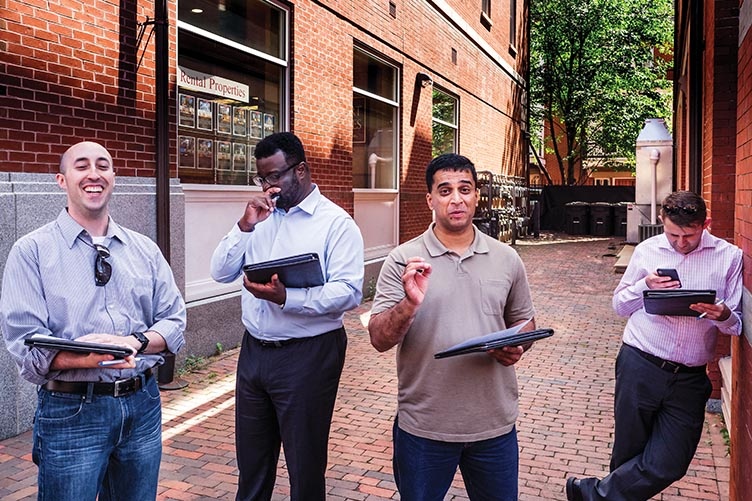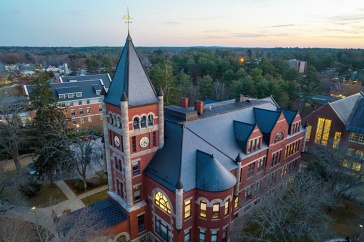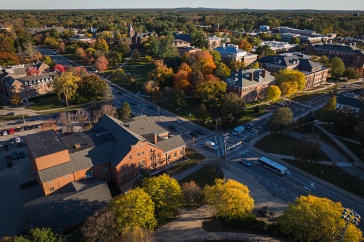
UNH Franklin Pierce School of Law Hybrid JD students’ on a field trip to visit Durham’s UNHInnovation and downtown Portsmouth as part of their immersion session.
When the 43 students enrolled in UNH Franklin Pierce School of Law’s newest JD program arrived in Concord in August, most of them didn’t spend too much time unpacking. That’s because the program — a hybrid JD in intellectual property, technology and information law — is a new kind of program, the first mostly online juris doctor in the United States focused on intellectual property and law for the information age. Following a 5-day residential session and orientation at the law school’s Concord campus, the students in the inaugural class returned to homes and jobs across the country to continue their coursework online.
“We’re reversing the law school/ student relationship,” explains Megan Carpenter, dean of UNH Franklin Pierce School of Law. “Rather than students moving to Concord for a top IP and technology law program, we’re bringing our world-renowned faculty to our students, wherever they are.”
The hybrid JD program is aimed at working professionals with a back- ground in technology or intellectual property — a discipline for which UNH Franklin Pierce is particularly well known. The school’s IP law program has been ranked among the top 10 in the country by U.S. News & World Report for 28 consecutive years and is currently ranked 5th. The curriculum for the hybrid program, which is fully accredited by the American Bar Association, is designed to be year-round for a total of 10 semesters and will take a minimum of 3 1/2 years to complete. And while the majority of the coursework will be completed remotely, students will convene in Concord four times per year.
“We’re making a top legal education attainable to working professionals who would not otherwise be able to access it,” Carpenter says.“It was so exciting to welcome this diverse class of future leaders in intellectual property, and I believe this program will serve as an example of how to best deliver the future of legal education.”
-
Written By:
Jennifer Oles | UNH Franklin Pierce School of Law

















































